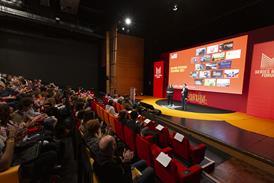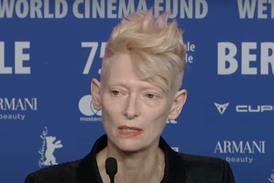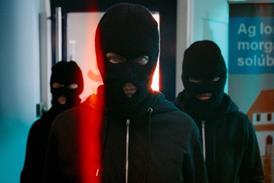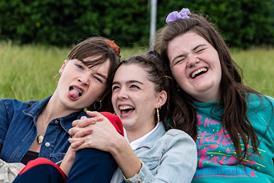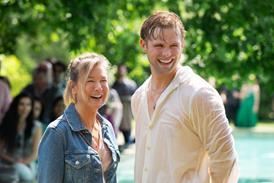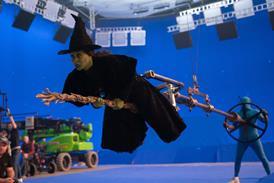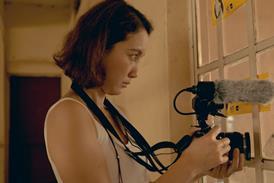Niche documentary follows German electro-pop musician Barbara Morgenstern as she creates her new album
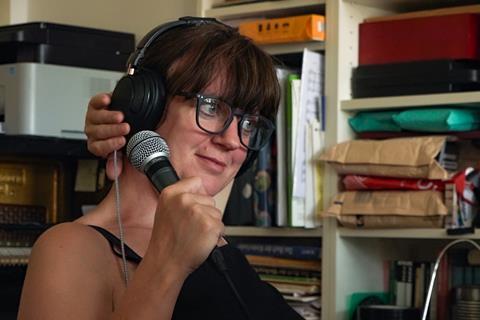
Dir: Sabine Herpich. Germany. 2024. 108mins
To understand the artist, study their creative process. This is the approach that filmmaker Sabine Herpich has employed in a series of documentaries about the act of making art, the latest of which follows the German electro-pop musician Barbara Morgenstern as she writes, records and finally performs her new album, titled ’In Anderem Licht’. It’s an intimate portrait, and Morgenstern is generous with her access and insights into the fine-tuning of her melodic, symphonic new songs. But it’s also a film with a very specific appeal; one that is unlikely to connect with audiences beyond Morgenstern’s existing fan base.
A film that will appeal most to audiences already familiar with Morgenstern’s musical output
This is the latest documentary in what can be viewed as an ongoing series of films by Herpich which engage with the creative process. The 2016 film David studied the sculptor and shoemaker David Laugomer; the mid-length film A Picture By Aleksander Gudalo follows the creation of a painting from start to finish. And Art Comes From The Beak The Way It Has Grown, which premiered in Berlin in 2020, is a film about an art workshop for people with disabilities.
Herpich’s approach is patient and unobtrusive; with long takes and a capacity to find something fascinating in seemingly mundane details, Herpich creates a space and invites her subjects to fill it in whatever way they wish. Morgenstern grins at the camera as she noodles around with her Macbook, which is balanced on top of a shoebox in a room lined with books and mementos. “I find the need to explain myself to you,” she says. “But I won’t.”
We join Morgenstern at a moment of change in her work. Her solo career as an electronic musician started in 1998; she has collaborated with, among others Mathew Herbert, Van Dyke Parks and Arto Lindsay. In addition, she has worked regularly with the theatre group Rimini Protokoll, both as a composer and a performer. With this latest album, which we follow in detail from its inception to its realisation, Morgenstern moves away from her electronic roots and embraces a new sound – she works with a string section and a saxophonist.
While this is undoubtedly a film that will appeal most to audiences already familiar with Morgenstern’s musical output, she is an easy, engaging character with whom to spend time. There’s an upbeat warmth and a sunny quality to her presence – she has an unabashed pleasure in the act of creating, of engaging with ideas, of collaborating with other artists. This, it turns out, is a conscious decision. As she flicks through photo albums and reminisces about her early life, Morgenstern reveals that her mother was largely absent from her childhood due to her severe and debilitating depression. “That was an extreme motivation for me,” says Morgenstern. “To say to myself, no way I’m going to hide away in my little house.”
Herpich’s leisurely pacing allows us to see aspects of the album-making process that wouldn’t normally be shared with an audience. Some of this is interesting: the way the music fleshes out and takes shape in the rehearsal room; the inspirations for the album cover and artwork. But some of it tries the patience – we spend an inordinate amount of time gazing at Morgenstern’s computer screen. But perhaps the ultimate test of any documentary about a musician is whether you would listen to them voluntarily. And Morgenstern passes that emphatically: her songs, with their layers of harmony, poetic lyrics and interesting, angular time signatures are distinctive, beguiling and rather lovely.
Production company: Büchner Filmproduktion
Contact: Büchner Filmproduktion tobias@buechnerfilm.de
Producer: Tobias Büchner
Cinematography: Sabine Herpich
Editing: Sabine Herpich
Featuring: Barbara Morgenstern




